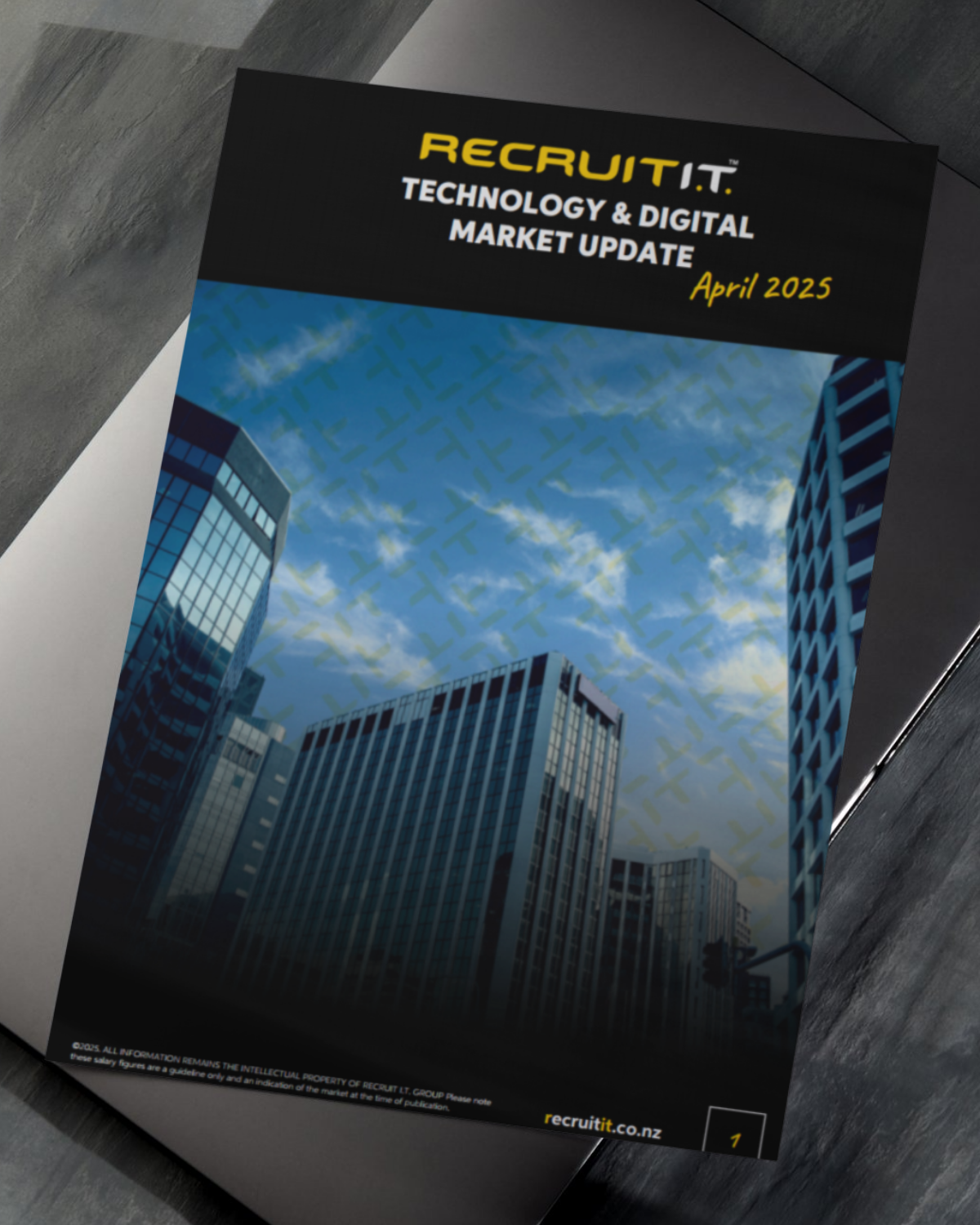Navigating Common Interview Questions
Regardless of industry or role, some interview questions seem to crop up time after time, and despite their ever-occurring presence – they still leave many a candidate either tongue-tied or waffling on forgetting what the question was in the first place.
As well as understanding and practicing behavioural interview techniques, it's a good idea to prepare answers for some of the more common 'icebreaker' and personality-gauging questions that might get thrown at you in an interview. We've included some of the top ones below:
1. Tell me about yourself.
This is a commonly asked interview question designed to help 'warm up' a candidate. Think of it as your elevator pitch and summarise your work experience, skills, and relevant education, plus offer some new information such as your goals or hobbies outside of work.
Keep it short and sweet, and don't fall into the trap of waffling – this isn't an invitation to give the interviewer every detail of your personal life, just to share a bit of your personality.
2. What attracted you to our company?
This is an excellent opportunity to show you have done your research on the company, so highlight things you read about the company's services, mission, and values on their website, social media channels and other forums. You want to demonstrate that you identified a link between what the company does and stands for and your skills, values and desired career path.
3. What interests you/made you apply for this job?
This question evaluates whether an applicant has considered a good fit for the role and filters out any people who want just any job. Highlight any specific responsibilities or challenges of the role that particularly appeal to you, and point out any skills or assets you have that make you an ideal applicant.
4. Tell me about your strengths.
Pick two or three of your best attributes, give clear examples of those strengths, and provide examples of how they have benefited previous employers. Be careful not to brag and clearly demonstrate how the strengths you have chosen are relevant to the role you are applying for.
5. What are your weaknesses?
The trick to answering this question is to take one or two minor weak points that you can show in a good light – don't rattle off a big list of weaknesses. Instead, try and pick a fault that isn't a skill or quality critical for the role and paint it positively.
6. Where do you see yourself in five years?
This question is likely to be checking whether you will stick in the role for a reasonable amount of time, as well as getting a gauge of how driven and goal-oriented you are, so frame your answer up carefully to show you are both realistic and flexible. Consider the level of the role, the structure of the team you will be working in, and the company's size – as well as your professional aspirations - when constructing your answer.
7. Tell me about a time when you…
Behavioural-based questions are very common and are used by interviewers to get an idea of how you apply the skills they are looking for. For example, you will need to describe a specific task or situation, what you did and what the result was using the STAR method. Read our guide to behavioural interview questions here.
8. What have you learned from your mistakes?
Humans are fallible, so by demonstrating learnings you've gained from mucking up, you come across as more honest and trustworthy than you would if you try to claim you never make mistakes.
Think of some minor errors or missteps you have made in your career, outline what you learnt from the situation, and most importantly, detail the steps or strategies you put in place to ensure the same mistakes didn't occur again.
9. What are the most important things you are looking for in your next role?
This can be a tricky question, and it is easy for candidates to fall into the trap of listing things they want from a company or role, such as benefits, opportunities or certain entitlements.
Instead, it is best to identify your skills and strengths and talk about how you are looking for a role where you will be able to utilise and further develop those abilities. It is also good to talk about your motivations and longer-term career goals, but making sure that your answer is relevant to the role.
10. Why are you leaving your current job?
This question can give away a lot about your personality, so unless the answer to this question is extremely clear cut – i.e. your role has been disestablished, or a contract has come to an end – it is important to keep your answer positive.
Focus on the positives you seek from a career change, such as learning new things, professional challenge or applying your skills to a new industry, and don't be negative about your current role, manager or company.
11. What did you like and/or dislike about your current/previous job?
As per the last question, this question aims to give the interviewer an idea of how positive or negative you are and what type of things motivate you. Try not to focus on superficial likes such as benefits, but instead talk about positive working relationships or enjoyable challenges or achievements of your role. When speaking about dislikes, keep these non-personal and with a positive slant where possible – for example, you might choose to say that despite a great culture, the company's size limited the progression opportunities.
12. What are your salary expectations?
Ideally, your recruitment consultant will have given you an idea of the band available for the role, so this question should not catch you unaware. If you are not working with a consultant, make sure you carry out some research beforehand to understand the market rate for the role and what you would accept. Check out our Salary Guides for recent trends and indicative bands.
13. Do you have any questions for me?
This question is a great opportunity for you to demonstrate any research you have done into the company and show your enthusiasm for the role. In addition, you might want to ask some questions about the services the company provides, the clients they service, or some specifics about the tasks performed in the role.
Some of the questions will likely be answered during the interview, so make sure you pay attention throughout so you don't ask the same question twice.
While thinking about and preparing some answer options is great interview preparation, make sure you don't try and memorise exact answers or get too locked down in exactly what you want to say. Interviews are a fluid process, and often the interviewer will ask a secondary question or get you to elaborate on your answer. Have a few examples prepared for each interview question, solidly based on real-life examples, and be flexible and adapt as the interview questioning goes on.
If you are looking for a new role, search our latest vacancies here, or get in touch with one of our friendly consultants for a confidential chat about how to take the next step in your career.



